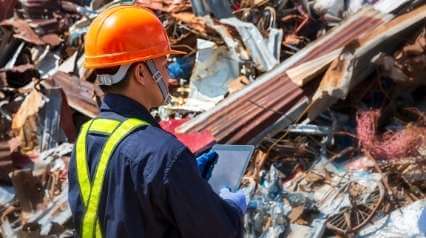
Waste management is all about taking measures to handle waste throughout its entire life cycle, from generation to disposal or recovery. In this guide, we will explore different waste disposal methods, the 5Rs of waste management, waste audit approaches, and best practices for various industries.
Waste Disposal Methods
There are multiple strategies and methods for waste management, with modern approaches focusing on sustainability. One important aspect is the 3Rs: reduce, reuse, and recycle. Recycling is ideal for inorganic waste like plastic, glass, and metals, while organic waste can be composted to create nutrient-rich fertilizer. Another method is waste-to-energy conversion, which turns non-recyclable waste into heat, electricity, or fuel using renewable energy sources like anaerobic digestion and plasma gasification. Hazardous waste can be treated through bioremediation using micro-organisms.
The 5Rs of Waste Management
The 5Rs are principles that guide efforts to reduce the environmental impact of waste. They are:
- Refuse – Say no to unnecessary items like single-use plastics and excessive packaging.
- Reduce – Minimize waste by using fewer resources and being more conscious of consumption.
- Reuse – Find ways to reuse items instead of disposing of them after a single use.
- Repurpose – Give items a new purpose or use, extending their lifespan.
- Recycle – Process used materials into new products to reduce the need for raw materials.
Waste Audit Approaches and Best Practices
Common approaches for conducting waste audits include record examinations, facility walk-throughs, and waste sorting. By analyzing waste hauling and disposal records, contracts with recycling facilities, and conducting observations and interviews with employees, organizations can identify waste-generating activities. Physical collection, sorting, and weighing of a sample of waste can also provide valuable insights. Digital waste audit checklists and comprehensive waste management checklists can assist businesses in managing waste efficiently.
Waste Management in the Construction Industry
The construction industry faces additional pressure to comply with waste management regulations. Waste management plans, like the Site Waste Management Plans Regulations 2008 in England, help make gradual improvements towards sustainability. These plans can be adapted for other industries by focusing on reducing waste and improving operations.
How to Create a Waste Management Plan
To create a waste management plan, it is crucial to get input from stakeholders and conduct waste audits to assess the current system. Once goals are finalized, determine the needed resources, assign responsibilities, and create a timeline for implementation. Documenting waste disposal and resource use is also essential for monitoring progress.
Role of Training in Implementing a Waste Management System
Training programs are crucial in implementing waste management systems. By providing regular training, workers will be equipped with the knowledge and skills needed to identify potential hazards. A digital operations platform can help reinforce waste management system plans effectively.
Food Waste Management System
Food waste audits enable restaurants to set reduction targets, measure food loss, and take action to combat food waste. By following a six-step process, which includes setting audit goals, planning the audit process, and evaluating results, restaurants can make significant progress in reducing food waste.
How to Conduct a Food Waste Audit in 6 Steps
- Develop audit goals and define targeted wastes.
- Complete a pre-audit questionnaire.
- Plan the audit process, including waste sorting and selecting a venue.
- Identify and accomplish audit logistics.
- Collect and sort waste.
- Evaluate audit results.
Hospital Waste Management System
Healthcare facilities must comply with government regulations for clinical waste management. Conducting frequent clinical waste audits ensures compliance. Clinical waste includes human or animal tissue, blood, other body fluids, pharmaceutical products, and any waste arising from medical or dental practices.
Hazardous Waste Management System
Hazardous waste management is crucial for protecting human health and the environment. The Resource Conservation and Recovery Act (RCRA) regulates hazardous waste. Businesses can use hazardous waste audit checklists to identify gaps in their waste management system and ensure compliance.
Remember, effective waste management is essential for a sustainable future. By implementing the right strategies and methods, we can reduce the environmental impact of waste and contribute to a cleaner, healthier planet.
